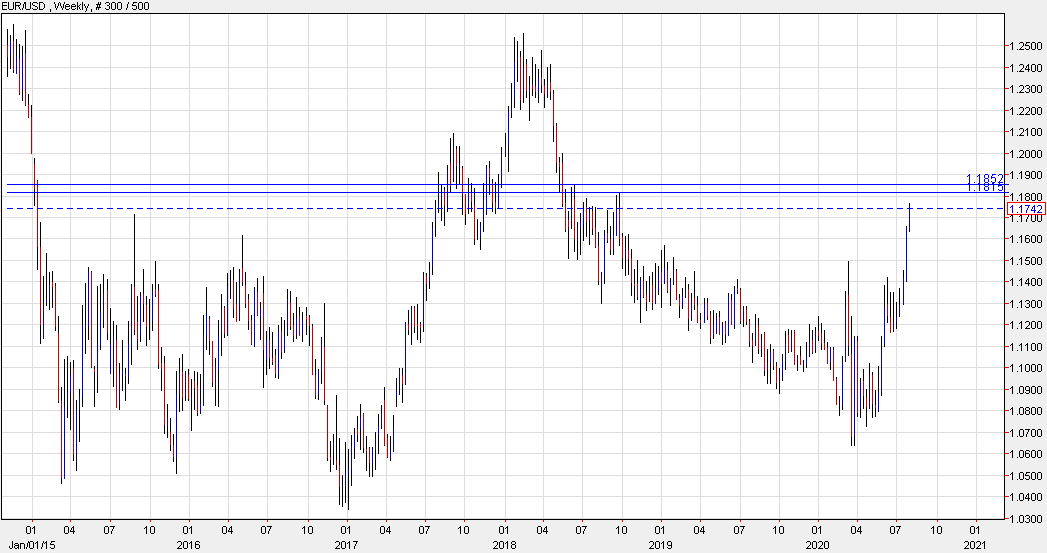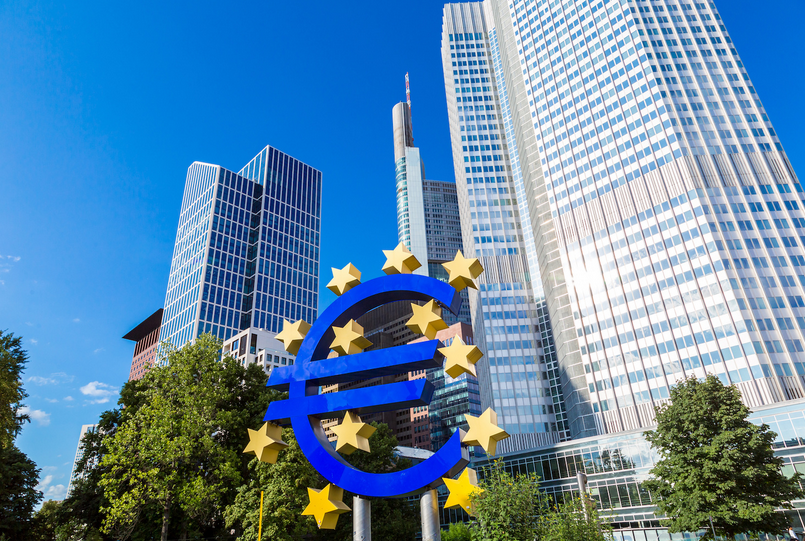Some catch up play for Europe going into the open
- German DAX futures +1.1%
- UK FTSE futures +0.6%
- Spanish IBEX futures +0.6%


Some updates to the virus situation across Europe recently warning by Saxony state premier UK imposing a 14-days quarantine for travelers from Spain The country recorded a rise of 340 new cases today, a more modest figure but could be skewed due to the ‘weekend effect’. This compares to the slight jump of 816 and 784 new virus cases seen on 24 and 25 July respectively.The rise comes amid localised outbreaks, with a farm in Bavaria seeing more than 500 people quarantined after 174 workers were tested positive for the virus.RKI estimates the 4-day virus reproduction rate to be at 1.22 and the 7-day average to be 1.16 as of yesterday; keeping above the threshold of 1.00.There have been concerns about the rising cases across the country, with the virus reproduction rate keeping above 1.00 threshold (it was 1.3 on Saturday) while daily new infections rose by 1,130 on last Friday.On the latter, that has seen the 7-day average in terms of cases rise above 1,000 for the first time since early June.Local authorities are warning about complacency but besides , they are maintaining their course to keep the economy running.
The situation in Italy appears relatively ‘under control’ with 275 new cases reported in the past day. Regional governments are continuing to stay prudent by reinforcing the need to wear masks in public spaces so that is encouraging.The slight rise in cases in Spain is seeing countries take notice with the UK imposing a 14-day quarantine for travelers from the country, following Norway’s decision to reimpose a 10-day quarantine as well for people arriving from Spain.This comes amid a surge in cases in Catalonia but the Spanish government’s virus expert has warned that the infection is already spreading among the general community in Barcelona and Zaragoza – saying that the rate of contagion has tripled.French prime minister, Jean Castex, has also “strongly recommended” its citizens to avoid going to Catalonia (the border remains open) though the region itself announced closure of bars and nightclubs for 15 days on Friday last week.Catalonia (counted separately from Spain’s total) itself reported nearly 1,500 new cases on Saturday, as the number of new cases in the region is starting to pick up again.Despite warnings of complacency and what not, local authorities are continuing to reaffirm that these outbreaks are “localised” and have not spread out of control. The right now remains on the – or at least continuing down that path.In due time, we’ll see how this all plays out but no doubt further reopening of international borders are going to be extremely tricky.The positive takeaway is that the death rate in most places isn’t as high as when the initial outbreak began but as infection numbers rise, there could be a delayed effect on that as medical capacity also starts to be burdened even more.


Happy Friday, everyone! Hope you’re all doing well as we look to get things going in the session ahead. Risk trades are in a better mood today with some recovery seen in yen pairs and gold is also lower to start the day.
 Those observing the emperor’s lack of clothing are multiplying. Earlier today, someone opened their mouth, and remarked on the blatantly obvious. Next thing you know Hungarian CDS was 30% wider, Romanian bond auctions were failing, the euro was tumbling, the PPT was scrambling, US markets closed green with nobody trading, etc. Yet the “letting the genie out of the bottle” award of the day has to go to the head of IMF’s policy-steering committee, Youssef Boutros-Ghali who said that the IMF is essentially insolvent in its current form of being the go to backstop for a European bailout. “If we are going to start including funds made available to Europe, then the IMF is not properly resourced,” Youssef Boutros-Ghali told Reuters, adding that IMF members were talking of doubling the amount of SDRs. The means the IMF is $318 billion short of solvency. And what is the IMF long? Why gold…3,005 tonnes worth.
Those observing the emperor’s lack of clothing are multiplying. Earlier today, someone opened their mouth, and remarked on the blatantly obvious. Next thing you know Hungarian CDS was 30% wider, Romanian bond auctions were failing, the euro was tumbling, the PPT was scrambling, US markets closed green with nobody trading, etc. Yet the “letting the genie out of the bottle” award of the day has to go to the head of IMF’s policy-steering committee, Youssef Boutros-Ghali who said that the IMF is essentially insolvent in its current form of being the go to backstop for a European bailout. “If we are going to start including funds made available to Europe, then the IMF is not properly resourced,” Youssef Boutros-Ghali told Reuters, adding that IMF members were talking of doubling the amount of SDRs. The means the IMF is $318 billion short of solvency. And what is the IMF long? Why gold…3,005 tonnes worth.
The IMF has to have more resources after the support for Greece and needs to “very significantly” increase the amount of special drawing rights, the head of the Fund’s policy-steering committee said on Friday. |
What does this mean in English? The IMF currently has 204 billion in allocated SDR to member countries (or $318 billion). Boutros-Ghali has basically said that in order to preserve its front-man status as a world bailout force (just because the Fed knows that the political whiplash of it being the bailout provider of last resort would mean the end of it, thus needing a strawman such as the IMF), the IMF will need to raise another $318 billion. Where will the IMF get that money? Here’s an idea: the IMF holds 3,005 tons of Gold. At today’s fixing, this equates to just over $116 billion (and much more should the price of gold mysteriously skyrocket). Of course, any fiction that the SDR is backed by gold will then disappear, but it’s not as if anyone even remotely pretends that any fiat currency (and the SDR is no exception) has any value left whatsoever. And since the US will end up having to fund the bulk of the SDR allocation, at least US taxpayers would be on the hook for a far more manageable $200 billion that the IMF needs in order to fully bail out Greece and everyone else in Europe.
A lesson I learned from Einstein is the benefit of being able and willing to changes one’s mind. At times a pacifist, he changed after witnessing the rearmament in Europe. In physics and science in general when presented with new evidence it is quite normal to revise theories and mathematical proofs, or even to reverse a position entirely. Putting ego aside, he did this many times, most famously dropping his famous Constant variable regarding a static universe when through experiment it was proved no longer necessary. This is skill which comes more naturally at a younger age, but is quite possible for the post 40 crowd as he demonstrated in his long career.
In his latest “What Next in The Global Economy” note, Morgan Stanley economist Joachim Fels passes along the following little story about Mario Draghi:
Who said central bankers have no sense of humour? During a recent dinner at Frankfurt’s Senckenberg Museum (the home of Germany’s most extensive collection of dinosaurs) Mario Draghi told the crowd his favourite joke:
A man needs a heart transplant. Says the doctor: “I can give you the heart of a five-year old boy.” “Too young.” “How about that of a forty-year old investment banker?” “They don’t have a heart.” “A seventy-five year old central banker?” “I’ll take it.” “But why?” “It’s never been used!”
I like the joke, and not only because I consider myself an economist working for an investment bank rather than an investment banker. Mario Draghi’s joke conveys a simple but important message: central banking is about making rational, cool-headed and unemotional decisions in often difficult circumstances. In the 15 years of its existence as the keeper of the euro, the ECB led by Mario Draghi and his predecessors Jean-Claude Trichet and Wim Duisenberg has had to make a lot of difficult decisions in difficult circumstances. A few of these decisions were questionable (though typically only with the benefit of hindsight), such as the rate cut in April 1999 or the rate hikes in July 2008 and in April and July 2011. Most of the other ECB decisions were just right or even hugely successful – just think of Mario Draghi’s announcement in July 2012 to “do whatever it takes” to safeguard the euro. (more…)
Time for European headlines. Because we haven’t had any in about 3 minutes or so. Courtesy of Bloomberg, here is Angela Merkel doing her best channeling of Hank Paulson.
And most importantly…
True, many, many strokes will be needed. But what about the market which has already priced in not only the Magic Wand but the Quidditch match victory over Slitherin. What now?